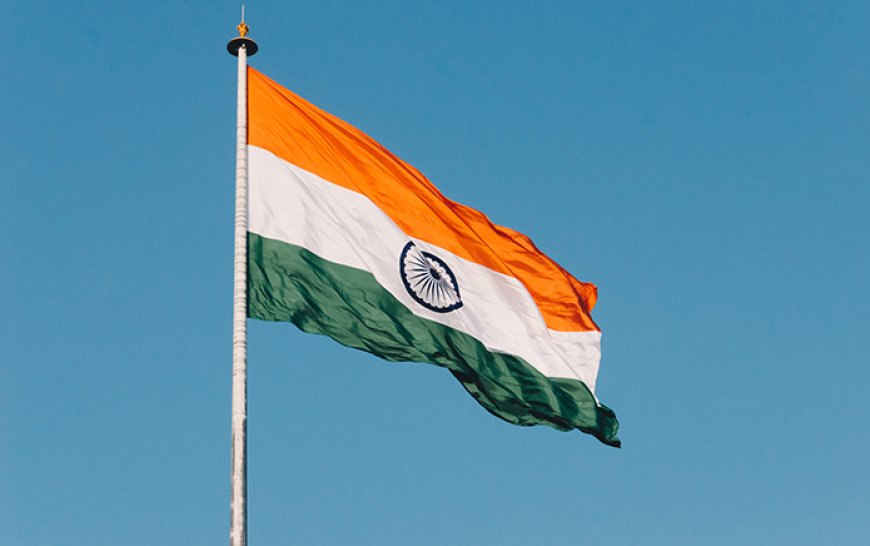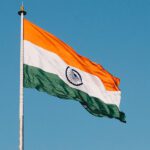India’s Supreme Court refuses to legalise same-sex marriage in momentous ruling
On 17 October, India’s Supreme Court declined to legalise same-sex marriages, in a three to two majority. In his closing remarks, Chief Justice Chandrachud said the “court cannot grant LGBTQ+… The post India’s Supreme Court refuses to legalise same-sex marriage in momentous ruling appeared first on GAY TIMES.


On 17 October, India’s Supreme Court declined to legalise same-sex marriages, in a three to two majority.
In his closing remarks, Chief Justice Chandrachud said the “court cannot grant LGBTQ+ people the right to marry as that is a legislative exercise.” However, he highlighted the “opportunity” for this moment to “remedy historical injustice” against LGBTQIA+ people.
Between April and May, the top court heard from 21 petitioners, including LGBTQIA+ couples, activists and organisations seeking marriage equality and reform to the Special Marriage Act of 1954. This act allows the marriage of people of different castes and religions to wed and petitioners were looking to include LGBTQIA+ people.
Lawyers for the petitioners argued that marriage was a union of two people, not just a heterosexual pairing, and that denying same-sex couples marriage equality was a violation of constitutional rights.
The government argued that marriage is between a singular cis-man and cis-woman. They further stated that it was not a court matter and rather only parliament had the authority to decide and change a law.
This viewpoint received cross-religion support from religious leaders across India, including Hindu, Muslim, Jain, Sikh and Christian. The groups argue that the purpose of marriage “is for procreation, not recreation”.
Historically, a group of 21 retired judges, further bolstered this argument when they wrote an open letter on 24 March that they were concerned about the alleged “continuous onslaught against the basic tenets of Bharatiya marriage traditions”. The impact of legalising same-sex marriage would “strike at the very root of the family system”.
The petitioners received support from the Indian Psychiatric Society (IPS), the largest mental health group in the country that represents 7,000 psychiatrists, who said “homosexuality is not a disease” and the discrimination of LGBTQIA+ people could “lead to mental health issues in them”.
The hearing, that concluded on 12 May, had its verdict read on 17 October. Despite the disappointing result Chandrachud highlighted that “the institution of marriage is not static – all social institutions transform over time and marriage is no exception.
“Despite vehement opposition to departure from practice, the institution of marriage has changed, it has metamorphosed. It has transformed from the time of our ancestors 200 years ago.”
Chandrachud went on to explain the role of the court and parliament and noted the role of the “doctrine of separation of powers can’t stop courts from enforcing fundamental rights.”
He said that these relationships may take many forms and “the right to intimate relations must be unrestricted.
“Even if a law doesn’t grant any special material benefits to a relationship, it should still be considered legitimate in the eyes of society.”
The verdict drew to a close with Chandrachud announcing a list of directions to the government, including the need for helplines to report hate, the creation of safe houses, access to gender affirming healthcare and introducing a ban on conversion therapy. He also said that LGBTQIA+ people should not face discrimination because of their gender identity or sexual orientation and that being LGBTQIA+ is not a “mental disorder”.
Chandrachud added the directives for the police that there should not be harassment or questioning of LGBTQIA+ people at the station about neither their gender nor sexual orientation, LGBTQIA+ people should not be forced to return to their birth family, police should provide protection to LGBTQIA+ who are facing violence from family.
The ban comes five years after a historic 2018 judgement when the Supreme Court scrapped a colonial-ban on gay sex.
Support has grown across India for same-sex marriage, with 53 per cent of people in favour of same-sex marriage, according to research by Pew Research released in June.
Taiwan and Nepal remain the only two countries in Asia to allow same-sex unions. Yet, recently two lower courts in Nepal have denied an LGBTQIA+ couple recognition of their marriage, whilst permanent legislative change is pending.
Their decision came following an interim order from the Nepalese Supreme Court on 28 June which stated that same-sex couples would be able to temporarily register their marriages while the government prepared legislation to amend the law around same-sex marriage.
The post India’s Supreme Court refuses to legalise same-sex marriage in momentous ruling appeared first on GAY TIMES.

 Mark
Mark 





